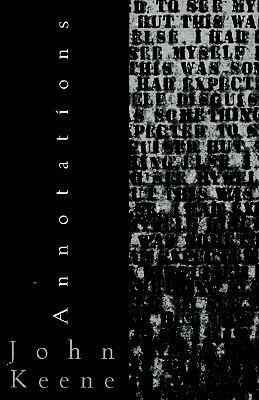Annotations is broad in scope, dealing with the experience of a few generations of poor blacks, though Keene focuses on his own family. A native of St. Louis, Keene draws on his past to depict the travails of ghetto life: the brutality of white police, the violence of young criminals, the temptation to adopt a “gangsta” way of life. This might sound like an exercise in complaining, but to Keene, St. Louis is “a minefield of myth and memory,” a place rich in urban folklore and blessed with a soiled charm. Even here, life is not without dignity. Faced with severe poverty, the family survives through a native resourcefulness and clan: Keene’s grandfather draws on his experience as a farmboy in Mississippi, where he learned “how to keep bugs from devouring potatoes without pesticide, [and] how to sow okra seed.” In the end, Keene’s family leaves St. Louis for a rustic suburb populated by working-class Irish. The years of hardship leave their psychological mark, but this memoir is surprisingly free from bitterness. Despite the racial enmity that crops up in the 1965 Watts riots and in his own day-to-day experiences, Keene rarely indulges in racial polemics. Instead, he focuses on his story, allowing the reader to appreciate the sheer alienness of people and place. Keene’s St. Louis is the site of strange junction of French and Negro culture. Conversing in a mixture of street slang and Creole, the characters impart many new terms to the reader, such as “rudiproots,” “Aleikam Salaam,” and “La Ba-Kair” (Keene furnishes a glossary). Even more memorable is Keene’s flashing, fragmented prose, which combines evocative slang with an eloquence worthy of Thoreau, Keene points to Faulkner and Joyce as mentors, and the book is filled with strange projections from his past experience. (“Several liquor stores sat in walking distance of that narrow, Negro crossroads, having raised and reared the men who owned them.”) The author’s cleverness and sheer narrative energy lend his style a dazzling quality, like a fireworks display. The result is a short book that lingers indefinitely in the reader’s mind.
[Annotations, By John Keene (New York: New Directions) 85 pp., $8.95]

Leave a Reply